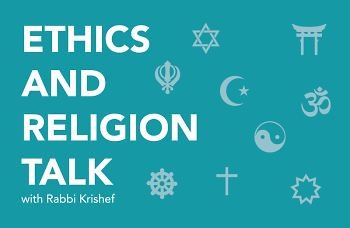Ethics and Religion Talk received a question touching on issues of impotence and living together without the benefit of marriage. Here’s the story:
“I'm 82 and love my significant other very much. And she loves me. We are both Catholic and the church says we cannot get married because I am impotent. It seems to me that we would like to at least live together and be together. Because I am not able to have sex and she really doesn't want or need sex why can't we just live together and enjoy the rest of our lives together? We do a lot of things together and so it just makes sense that we are able to be together and do the things that we like to do like play golf, go out to dinner, go dancing, traveling, etc. We attend church every week and are faithful to our Lord.”
The question really contains two questions, which we’ll explore this week and next. First, there is the question of whether marriage should be disallowed if one or both partners are impotent, and what is the basis for such a decision. And second is the question of whether it is permitted for a couple, one of whom is impotent, to live together without getting married, in a platonic fashion, without sex – essentially, as roommates.
I was especially fascinated by the first question, because it never occurred to me that one’s ability to engage in a sexual act would determine whether one could get married. In my tradition, marriage (and sex) is for the purpose of companionship, intimacy, and procreation. One need not have all three. A marriage without intimacy and procreation is nonetheless valid as a marriage. Because the questioner is Catholic, I checked with our Catholic panelist.
Father Kevin Niehoff, O.P., a Dominican priest who serves as Judicial Vicar, Diocese of Grand Rapids, responded:
“The Catholic Church teaches, ‘the consent by which the spouses mutually give and received one another is sealed by God himself’ (cf. Mark 10:9). The Second Vatican Council teaches, ‘authentic marriage love is caught up into divine love’ (Gaudium et Spes, 48, §1). Full engagement in marriage requires both the exchange of consent and the consummation. Consummation occurs when the two freely give themselves to one another. Unfortunately, there is no marriage if either or both parties to the marriage are impotent.”
Father Niehoff went on to respond to the question of a couple living together platonically without marriage:
“Yes, it is permissible for a couple to live in a platonic relationship. A brother/sister relationship may be valuable when the two are in a marriage not recognized by the Catholic Church but want to receive the sacraments.
“There is a process the couple must go through. The result includes receiving the necessary permission from the local Bishop to live together in a brother/sister relationship. The couple then regains the ability to receive the sacraments.”
My tradition, as I understand it, would agree that there is no violation of Jewish legal standards other than the appearance of impropriety. Because the couple appears to be living together as a couple, with all of the privileges and benefits of such, without marriage, and because the man’s impotence is presumably not widely known, it appears that they are engaging in a sexual relationship without marriage. In traditional Jewish circles, this would be a violation of Jewish norms, although in all but the most traditional communities, there would be no censure of the couple within the synagogue.
To the first question, Linda Knieriemen, Senior Pastor at First Presbyterian Church in Holland, responded:
“Certainly! Ones ability to have sexual relations is not relevant for couples wishing to marry in the PCUSA. In fact, as one who officiated at hundred of marriage ceremonies, it never occurred to me to ask if one or the other was impotent! Communication between the couple in such situations, however, is essential. How they resolve details of their abilities and interests should be mutually known ahead of a marriage.
“God created human bodies for enjoyment and is delighted in responsible physical expression of love… as well as for procreation! Marriage is a commitment of love within which sexual expression (in a wide variety of forms) is celebrated and where children may or may not be conceived. But as you hint, sexual expression is not all that marriage is about! It’s an intentionally safe space in which individuals can grow and flourish emotionally, spiritually, intellectually. With or without intercourse.”
And to the second question, regarding living together without marriage, she responded:
“My denomination would not prohibit such a relationship. In fact, among couples of a ‘certain age’ is probably more common that one might assume! My question would be if the not impotent individual would be seeking sexual expression outside of that relationship. For the wholeness of both persons, the arrangement needs to be emotionally and physically safe, mutually acceptable, and exclusive.”
Next week, we’ll review a Reformed, Unitarian, and Hindu approach to these questions.
This column answers questions of Ethics and Religion by submitting them to a multi-faith panel of spiritual leaders in the Grand Rapids area. We’d love to hear about the ordinary ethical questions that come up in the course of your day as well as any questions of religion that you’ve wondered about. Tell us how you resolved an ethical dilemma and see how members of the Ethics and Religion Talk panel would have handled the same situation. Please send your questions to [email protected].
The Rapidian, a program of the 501(c)3 nonprofit Community Media Center, relies on the community’s support to help cover the cost of training reporters and publishing content.
We need your help.
If each of our readers and content creators who values this community platform help support its creation and maintenance, The Rapidian can continue to educate and facilitate a conversation around issues for years to come.
Please support The Rapidian and make a contribution today.
